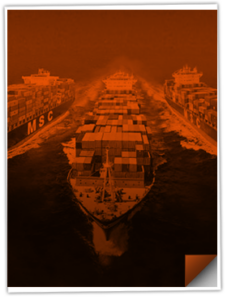Take Note! Seafood Import Monitoring Program (SIMP) Compliance Period to Terminate on April 1, 2019Seafood Import Monitoring Program (SIMP) Compliance Period to Terminate on April 1, 2019
- March 8, 2019
On December 31, 2018, the National Marine Fisheries Services (NMFS) added Abalone and Shrimp to the list of SIMP commodities that require additional information when importing. To assist importers with the transition, they permitted a compliance period that would allow Customs entries to be processed without the required elements. That compliance period ends April 1, 2019.
Here’s what you need to know:
To whom does this requirement apply?
All importers of certain seafood products; the Importer of Record is liable to provide and report the data elements.
Which seafood products are regulated by SIMP?
Abalone, Atlantic Cod, Blue Crab (Atlantic), Dolphinfish (Mahi Mahi), Grouper, King Crab (red), Pacific Cod, Red Snapper, Sea Cucumber, Sharks, Shrimp, Swordfish, Tunas (Albacore, Bigeye, Skipjack, Yellowfin, and Bluefin.
What are the important dates of which I should be aware?
- January 01, 2018: Filing SIMP data elements upon importation for eleven species became mandatory
- December 31, 2018: Shrimp and Abalone were added to list of commodities required to submit SIMP when importing
- April 1, 2019: The compliance period that allows entries to be processed without SIMP information ends. SIMP is now mandatory for the associated HTS numbers.
Where can I find the specific HTS numbers affected by this requirement?
- The HTS items affected by this requirement fall under chapters 3 and 16.
What are the responsibilities of the importer of record?
- The importer must obtain the International Fisheries Trade Permit (IFTP) issued by NOAA Fisheries.
- The importer must provide the scientific names and species of the items.
- The importer must keep detailed records that show the chain of custody.
- The importer must document of any processing, re-processing, and commingling of the items.
How does this change my Customs Entry?
The Customs Entry will now be flagged for SIMP; this means additional data elements may need to be transmitted. The elements include:
- Harvesting or producing entity information like the harvesting vessel name and flag, the authorization to fish, and the type of fishing gear.
- Harvest event information such as: the landing dates, product form, points of landing and entities involved.
What do you mean by “may” need to be transmitted?
The required data elements will depend on the scientific name and species of the product. If it falls on the list referred to as the Full Data Set list, then we will need all of the information mentioned above.
If the items do not fall on that list, then we will simply need to provide the scientific name of the item.
What do I need to do after entry is made?
Retain the records for the harvest and landing data as well as any documentation showing the chain of custody. SIMP does have an auditing process in place. More information can be found here.
For any questions regarding this message, please contact us at [email protected].
Shapiro will continue to monitor the situation and provide status updates as they become available.



